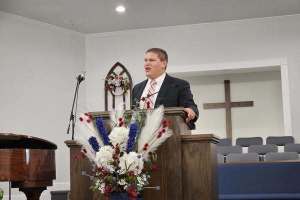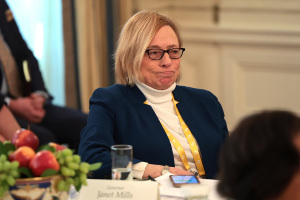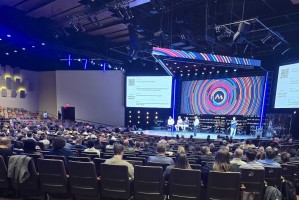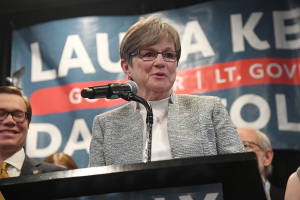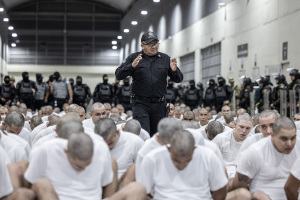Majority of churchgoers, especially evangelicals, share political opinions of clergy: study
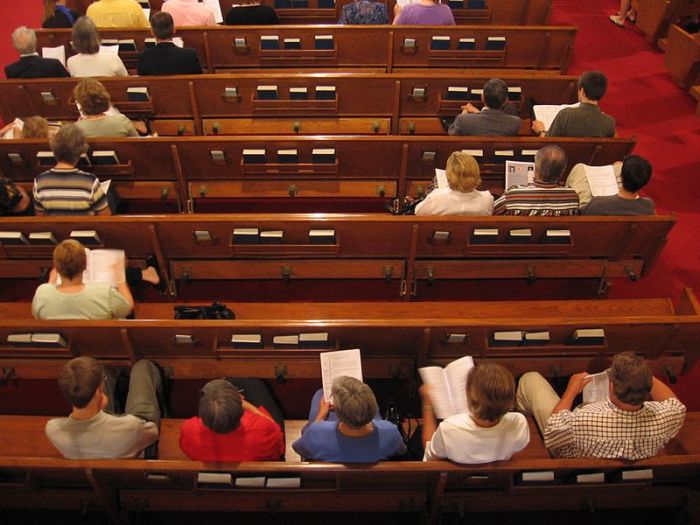
A majority of churchgoers say they share the opinions of their clergy when it comes to politics, and evangelical Protestants are more likely than others to align with their spiritual leaders, according to a new study from the Pew Research Center.
The analysis, based on data collected in 2019, shows that 62% of Americans who attend religious services at least a few times a year generally agree with their clergy about politics.
“Evangelical Protestants are particularly likely to do so (76%), compared with fewer who say this in the historically black Protestant (65%), mainline Protestant (58%) and Catholic traditions (53%),” Pew said.
While the study did not say how frequently politics is discussed in church, it noted that respondents to the survey were generally satisfied with the amount of political talk they hear from the pulpit.
“Among Americans who attend worship services a few times a year or more often, 72% say there is about the right amount of political discussion in sermons, while fewer say there’s too much (11%) or not enough (14%),” Pew’s Claire Gecewicz noted.
Among U.S. adults who attend religious services a few times a year or more often, however, a significant minority, 45%, were not sure if the clergy at their congregation are Democrats or Republicans. Some 27% say their clergy are a mix of both, while 16% of respondents who felt they knew the political affiliation of their religious leaders say they are mostly Republican, while 11% identified their religious leaders as Democrats.
The study also noted that a majority of Americans in general feel churches should keep out of political matters even as evangelical Christian voters remain a loyal voting bloc for President Donald Trump.
“Many Americans are uncomfortable not only with clergy endorsing candidates from the pulpit at election time, but also with churches and other houses of worship speaking out on day-to-day social and political questions. Overall, more than six-in-10 U.S. adults say places of worship should keep out of political matters (63%); only 36% think they should express their views on day-to-day social and political issues,” Pew added.
Evangelical Christians and historically black churches disagree with that position. They were found to be the only major U.S. religious groups that believe churches should express their social and political views. Only about a third or fewer in other religious groups share this view, the study said.
Many evangelicals believe President Trump has been a strong supporter of the church’s role in society.
Televangelist Paula White was named last year as a staff member at the White House working in the Office of Public Liaison with the Faith and Opportunity Initiative established by the president in May 2018.
The Faith and Opportunity initiative was established by executive order to assist faith-based and other organizations in their efforts to strengthen the institutions of civil society and American families and communities.
“These organizations lift people up, keep families strong, and solve problems at the local level. The executive branch wants faith-based and community organizations, to the fullest opportunity permitted by law, to compete on a level playing field for grants, contracts, programs, and other federal funding opportunities. The efforts of faith-based and community organizations are essential to revitalizing communities, and the federal government welcomes opportunities to partner with such organizations through innovative, measurable, and outcome-driven initiatives,” Trump wrote in part in the order.
The Orlando Sentinel's editorial board vehemently opposed White's appointment, however, and declared in an editorial that religion was being weaponized in politics.
“We’re particularly appalled — though not surprised — by Paula White. Not because she’s a conservative but because of her naked use of religion as a weapon. She’s trying to frighten believers with apocalyptic consequences if they don’t get in line behind this president,” the board wrote referring to comments made by White that Christians will have to answer to God if they vote against him in 2020.
“Unfortunately, the national attention on these self-promoting evangelical opportunists risks overshadowing the selfless work of Christian churches and missions that help people who are hungry, poor, sick and homeless. … Evangelical leaders — some of them, anyway — exploit elements of religion not to further the cause of faith but to achieve a political end. It’s not hard to figure out why: Paula White and her kind will never be more visible or relevant in politics than they are with Donald Trump in office. That’s why they go about the cynical work of weaponizing religion, in contrast to the many Christians who quietly go about the hard work of growing their faith and using it to aid the afflicted,” the board added.
















